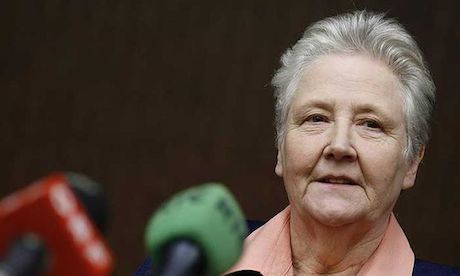When she was 13 years old in 1960, Marie Collins underwent treatment for a bone infection in a Dublin hospital.
In the privacy of a ward cubicle, she was raped by the hospital chaplain, Father Paul McGennis.
She did not report the priest until 1995, some 35 years later.
When she went public, she says, she received only “lies and deceit” from the archdiocese of Dublin. In 1996, the then archbishop of Dublin, Desmond Connell, refused to turn over McGennis’s file (detailing his known offences) to the police. The archbishop apologised for this in 2002.
McGennis was sent to jail for multiple acts of abuse in 1997.
Today, Marie Collins is one of four lay women appointed by Pope Francis to an eight-member Vatican commission for the protection of children.
The appointments have astonished the Catholic world for they place the women involved in positions of authority usually reserved for Cardinals and high-ranking clerics, demonstrating a dramatic alteration in papal regard for women and their scope for participation in Church governance.
But how deep, and how lasting?
After the reforming Second Vatican Council of the mid 1960s, religious women united to improve their status, some even calling for a women’s priesthood.
Successive popes outlawed even discussion of ordination for women. John Paul II made it a matter of infallibility that women could never be priests.
Even as feminist theology flourished in universities throughout the world, the hierarchies continued to promote an ideal of Catholic womanhood as the embodied virtues of the Virgin Mary – chastity and obedience.
Francis appears set to break that ancient relegation of women. Continue reading.
Source: Newsweek
Image: The Catholic Catalogue
